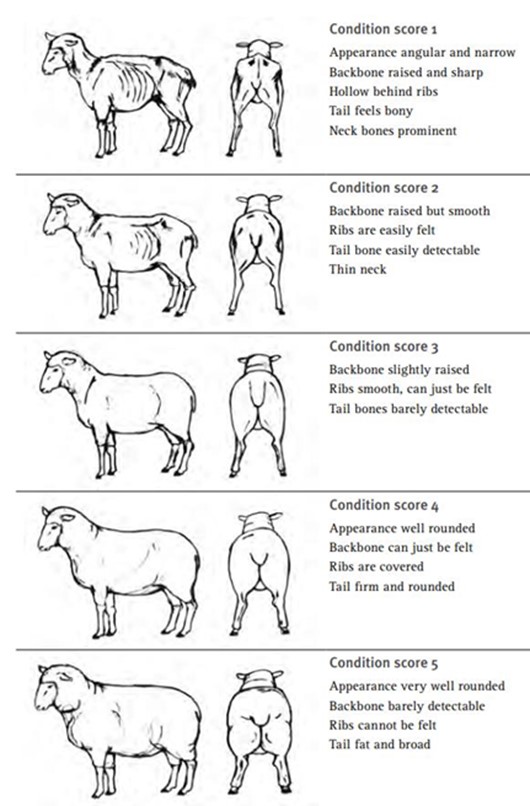Winter Ewe Supplementation
By Brent Roeder, MSU Extension Sheep and Wool Specialist
This is a short overview on general supplementation for ewes presented at the 2022 Montana Ram Sale in Miles City.
Spring Needs = Energy, minerals and fiber.
- Spring grass is high in protein (and moisture) and low in energy.
- Need to supplement with energy and try and slow passage rate.
- Cold, cloudy days in early spring lead to magnesium deficient grass.
- Feed intakes are very high and they are eating mostly water and chasing grass.
- Ewes generally need energy and minerals due to high milk demands.
Fall & Early Winter Needs = Protein
- Fall grass is generally high in energy and lower in protein and moisture.
- Need to supplement protein to feed the microbes digesting the high fiber grass.
- Focus on supplementing and not substituting.
Winter Needs = Dependant on forage availability
- Range conditions have generally deteriorated.
- Ewes generally not meeting intake or nutritional requirements.
- Severe winter conditions stress ewes, especially if shearing early.
- Must match supplementation with pregnancy stage.
Sheep Pregnancy Stages
- Sheep are scored for feed needs using the 1 to 5 Body Condition Score (BCS) rating (See figure below).
- 150-day gestation period broken into three trimesters of 50 days each.
- October 15: Bucks in. Remember flushing does not work on fat ewes (BCS 4 & 5).
- October 16-December 4: Early-gestation (1 to 50 days) Just maintain weight, if in good condition (BCS 3+). However, if below BCS 3, need supplementation.
- December 5-January 23: Mid-gestation (51 to 100 days) Placental development and brown adipose tissue laid down in the lamb. Just maintain weight, if in good condition (BCS 3+). Cannot afford to lose weight.
- January 24-March 14: Late-gestation (101-150 days) Rapid fetal and mammary development based on the size of the placenta. Needs to gain weight with shearing in mid to late February and lambing starting around March 14. BCS around 3 to 4 is ideal. Over BCS 4 and predisposed to Pregnancy Toxemia and dystocia problems. Under BCS 3, can have poor milk and lamb vigor.
Sheep Body Condition Scoring | www.daf.qld.gov.au

General findings from Thomas and Kott 1995.
- Supplementation is cost effective most winters in Montana.
- Supplements fed at 0.2 to 0.3% of ewe body weight (1/2 lb. per 175 lb. ewe) did not reduce forage intake.
- Body condition entering winter influences ewe productivity and the response to supplementation. Ewes in better shape can use supplementation more effectively.
- Energy supplements are cost effective when ewes can afford to lose some weight (BCS 4+), range forage is available and winter weather is mild.
- Protein supplements are cost effective when ewes cannot afford to lose weight and/or when winter weather reduces forage intake.
- Ewes can be supplemented on alternate days while grazing winter range.
Thomas VM and RW Kott 1995. A Review of Montana Range Ewe Nutrition Research, Sheep and Goat Research Journal, Volume 1, Number 11, 1995.
Final Thoughts
- Sort young, old and thin ewes off and supplement separately.
- Tubs can be a good option if weather or other duties impede daily feeding.
- If the ewes are stressed or a storm is coming, the best supplement is the one you have on hand regardless of energy or protein needs.
- Don’t cut back on supplement if the weather gets nice.
- The researchers concluded that increased body weight gain does not always translate into increased economic returns when ewes are in good body condition entering winter, forage availability is good, winter weather is mild and ewes are fed adequately in late pregnancy.
If You Just Woke Up and Take Nothing Else Home from Thomas and Kott 1995
Inadequate ewe nutrition during mid-pregnancy can impede the growth and development of the placenta, which results in low oxygen transfer to the fetus. If nutrient restriction during mid-pregnancy is severe enough, it cannot be made up for in late pregnancy.
